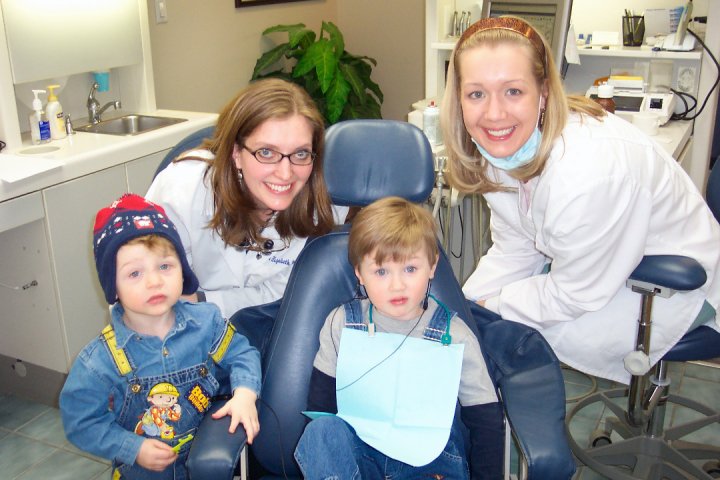By: Dr. Elizabeth Eggert
There is a growing awareness about the dangers of obstructive sleep apnea. However, what most people don’t know is that sleep apnea affects adults and children alike. Early intervention for children who struggle with sleep apnea can greatly improve their quality of life and protect them from serious complications and risk of death. Fortunately, knowledge is power. When equipped with knowledge about what pediatric sleep apnea is, signs to watch for that indicate a problem, and awareness of risk factors that can contribute to sleep apnea, you possess the tools you need to intervene if a child you love is at risk.
What is sleep apnea?
Just like the name sounds, obstructive sleep apnea is an airway blockage. During sleep, the most common cause for apnea is when muscles in the back of the throat relax, the tongue and surrounding tissues migrate back into the throat, and therefore obstruct the airway.
Symptoms of pediatric sleep apnea
The symptoms of pediatric sleep apnea are very different than sleep apnea symptoms in adults. Whereas adults suffer primarily from incessant snoring and chronic daytime fatigue, children’s symptoms vary greatly. Children may or may not snore and may actually appear hyperactive during the day. Oftentimes, kids who struggle with undiagnosed sleep apnea are misdiagnosed with ADHD. Other pediatric symptoms include but are not limited to:
- Restless sleep
- Snorting, coughing or choking in their sleep
- Mouth-breathing
- Bedwetting
- Sleep terrors
- Learning problems
- Behavior problems
- Persistent fatigue
- Poor weight gain and growth
Risk factors that can contribute to pediatric sleep apnea
There are numerous conditions that predispose a child to sleep apnea. Some of these risk factors include:
- Obesity
- Down syndrome
- Cerebral palsy
- Family history of sleep apnea
- Airway blockages from tonsils and adenoids
- Low birth weight
- Neuromuscular disease
- Sickle cell disease
- Craniofacial abnormalities
When to see a doctor
 If your child is a mouth-breather and consistently wakes up feeling tired or exhibits ADHD symptoms during waking hours, it’s a good idea to bring him or her into the doctor for evaluation. You may want to consider an appointment with an ENT who looks at sleep OR a sleep doctor directly.
If your child is a mouth-breather and consistently wakes up feeling tired or exhibits ADHD symptoms during waking hours, it’s a good idea to bring him or her into the doctor for evaluation. You may want to consider an appointment with an ENT who looks at sleep OR a sleep doctor directly.
If you’re concerned that craniofacial abnormalities are causing sleep apnea for your child, call Eggert Family Dentistry. Dr. Elizabeth or Dr. Jeff can evaluate your child’s teeth, jaw, tongue, and airway and make recommendations. Depending on your child’s age, Dr. Elizabeth or Dr. Jeff can fit your child with an in-mouth appliance – similar to an orthodontic retainer – which helps to maintain an open airway all night long.
Complications of untreated sleep apnea in kids and adults
When left untreated, sleep apnea in children can result in failure to grow and thrive, poor brain development, heart problems, and even death. If left untreated into adulthood, sleep apnea can decrease a person’s lifespan by up to 10 years, cause an increase in blood pressure, an increase in the risk of heart attack, stroke, type 2 diabetes, cancer, and dementia.
Needless to say, sleep apnea is nothing to mess around with. Eggert Family Dentistry is proud to be sleep apnea savvy, serving our patients with the knowledge, skills and resources to effectively screen for and often treat sleep apnea in both children and adults. If you’re concerned that someone you love is suffering from sleep apnea, give us a call at 651.482.8412 or contact us to set up an evaluation.


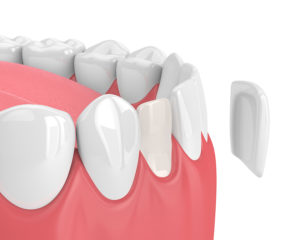 Dental veneers
Dental veneers
 Few dental situations make a teen feel more self-conscious than crooked teeth. Not only do braces straighten teeth and correct your teen’s bite but because crooked teeth can lead to other oral health problems, braces also reduce the instance of cavities and gum disease. It’s never too early to begin the braces conversation with Dr. Elizabeth or Dr. Jeff! While we are not an orthodontic office and only provide some Invisalign services, we are happy to refer you to some excellent orthodontists in the area when recommended.
Few dental situations make a teen feel more self-conscious than crooked teeth. Not only do braces straighten teeth and correct your teen’s bite but because crooked teeth can lead to other oral health problems, braces also reduce the instance of cavities and gum disease. It’s never too early to begin the braces conversation with Dr. Elizabeth or Dr. Jeff! While we are not an orthodontic office and only provide some Invisalign services, we are happy to refer you to some excellent orthodontists in the area when recommended. First of all, the best defense against a knocked out tooth is a mouthguard. Dr. Elizabeth or Dr. Jeff can craft your teen a custom mouthguard that will fit snugly against their teeth and protect them while they’re playing sports. However, we know that in some instances a permanent tooth can get knocked out. Should this happen, it’s best to rinse the tooth in cool water and try and replace the tooth in the socket by having your teen bite down on gauze or a wet washcloth. If the tooth won’t relodge, place it in a small container of milk. In both instances, give us a call right away. We will fit your teen in for an emergency appointment.
First of all, the best defense against a knocked out tooth is a mouthguard. Dr. Elizabeth or Dr. Jeff can craft your teen a custom mouthguard that will fit snugly against their teeth and protect them while they’re playing sports. However, we know that in some instances a permanent tooth can get knocked out. Should this happen, it’s best to rinse the tooth in cool water and try and replace the tooth in the socket by having your teen bite down on gauze or a wet washcloth. If the tooth won’t relodge, place it in a small container of milk. In both instances, give us a call right away. We will fit your teen in for an emergency appointment.
 At Eggert Family Dentistry, we are no stranger to unexpected dental incidents. From sports injuries to falls to hard or sticky foods that wreak havoc on teeth, we know there are plenty of scenarios that can lead to dental damage. The challenge comes in deciphering which scenarios constitute a dental emergency and which scenarios don’t need immediate attention, and then proceeding accordingly.
At Eggert Family Dentistry, we are no stranger to unexpected dental incidents. From sports injuries to falls to hard or sticky foods that wreak havoc on teeth, we know there are plenty of scenarios that can lead to dental damage. The challenge comes in deciphering which scenarios constitute a dental emergency and which scenarios don’t need immediate attention, and then proceeding accordingly.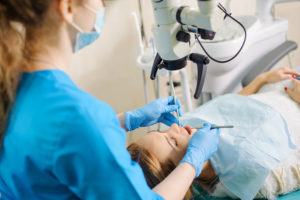 Occasionally, an abscessed tooth will present itself with immediate and intense nerve pain and/or severe swelling. If you suspect this is happening for you, we recommend you give us a call at the onset of symptoms, once again utilizing Dr. Elizabeth’s cell phone number for after hour emergencies. In the middle of the night, she may not get the call. If at any time you feel like your airway is compromised or the swelling is out of control, it is important to go to the nearest Emergency Room.
Occasionally, an abscessed tooth will present itself with immediate and intense nerve pain and/or severe swelling. If you suspect this is happening for you, we recommend you give us a call at the onset of symptoms, once again utilizing Dr. Elizabeth’s cell phone number for after hour emergencies. In the middle of the night, she may not get the call. If at any time you feel like your airway is compromised or the swelling is out of control, it is important to go to the nearest Emergency Room.



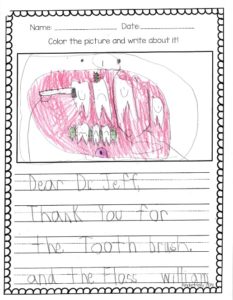
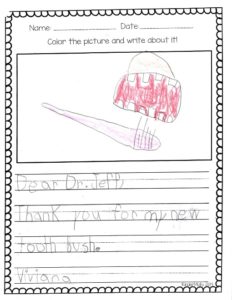

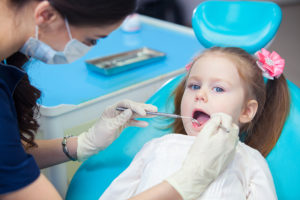
 Paul Casamassimo, D.D.S., professor of pediatric dentistry at Ohio State University College observes, “Children now have much more sugar in their diets at an early age” contributing to their increased propensity to develop cavities. Sugar, when introduced to your mouth, causes bacteria in plaque to produce acids that war against tooth enamel. Plaque is sticky and holds these acids against your teeth causing the enamel to break down over time. This is when cavities form.
Paul Casamassimo, D.D.S., professor of pediatric dentistry at Ohio State University College observes, “Children now have much more sugar in their diets at an early age” contributing to their increased propensity to develop cavities. Sugar, when introduced to your mouth, causes bacteria in plaque to produce acids that war against tooth enamel. Plaque is sticky and holds these acids against your teeth causing the enamel to break down over time. This is when cavities form. In most cases, treatment consists of removing the decaying part of the tooth and replacing it with a filling. Fillings come in a variety of materials. Most often we are using the white composite material with children and adults. Cavities in baby teeth are treated just as seriously as cavities in adult teeth since baby teeth hold space for future adult teeth. When baby teeth fall out prematurely or have to be pulled because of excessive decay, the child is at risk for improper spacing or positioning of adult teeth, making him/her a more likely candidate for braces down the road.
In most cases, treatment consists of removing the decaying part of the tooth and replacing it with a filling. Fillings come in a variety of materials. Most often we are using the white composite material with children and adults. Cavities in baby teeth are treated just as seriously as cavities in adult teeth since baby teeth hold space for future adult teeth. When baby teeth fall out prematurely or have to be pulled because of excessive decay, the child is at risk for improper spacing or positioning of adult teeth, making him/her a more likely candidate for braces down the road.